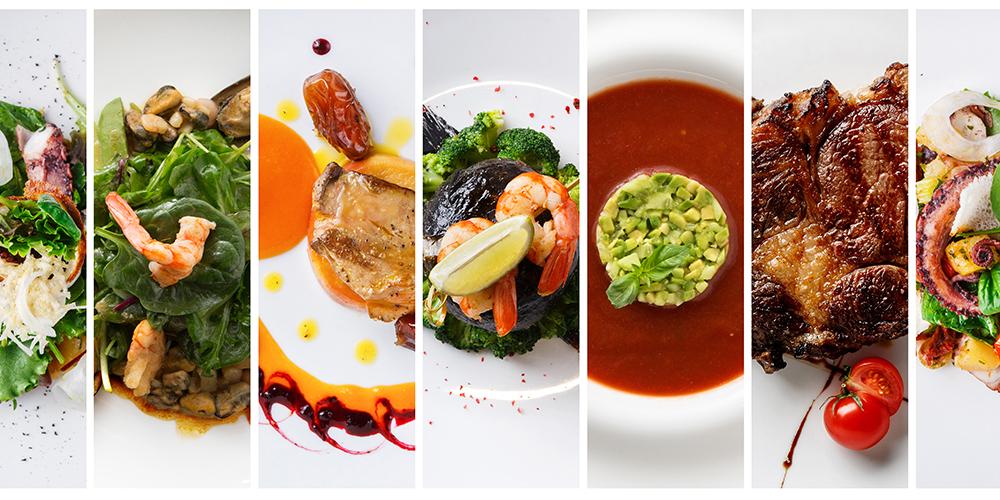
You have been diagnosed with a hernia. It can be really irritating when you feel that irritation near the throat or pain while gulping food. Take a deep breath and relax. The symptoms of hernia including acid reflux or pain around the hernia are avoidable if you just keep an eye on what you are eating. Read along to know about some diet tips that are effective for hernia patients.
Table of Contents
Diet Tips for Hernia Patient-
| Do’s | Don’ts |
| Eat foods that are high in HDL such as almonds, walnuts, oats, and flax seeds. | Eat red meat, organ meats, shellfish and foods that are rich in cholesterol. |
| Consume fatty fish such as tuna, sardines, salmon, mackerel. | Consume food prepared from reheating the oil. |
| Include protein such as egg white and skinned chicken. | Eat foods that are prepared in high cream and cheese. |
| Fiber-rich foods such as whole grains, legumes, vegetables and fruits are a must. | Have saturated fats such as palm oil, butter, margarine, ghee. |
| Replace with whole-milk with low-fat milk products. | |
| Make sure to drink green tea. |
Foods Hernia Patients Should Eat
Hiatal hernia patients should include a diet that involves eliminating food items that can aggravate the symptoms. The duration of diet depends completely on the severity of the condition. Below mentioned is a list of food items that hernia patients can consume with proper consultation of the doctor-
- Whole grain meal
- Aloe vera juice
- Cabbage juice
- Carrot juice
- Yogurt
- Almonds and chia seeds
- Soy milk
- Almond milk
- Artichokes
- Carrots and peas
- Sweet potatoes
- Green beans
- High fiber foods such as oatmeal, whole grains, beans and legumes
- Non-citrus foods such as apples, pears, various melons and berries
- Green tea
- Lean protein
Foods Hernia Patients Should Avoid
Processed foods
High starch foods such as white bread, instant noodles, low-fiber pasta, and pretzels cause constipation and excessive straining while passing stool that can worsen the hernia pain. Here is a list of processed starches avoiding which can help with the symptoms-
- Flaked/ puffed/ shredded/ extruded breakfast cereals
- Crackers, cookies and salad dressings
- Pasta sauce and other pre-made sauces
- All carbonated drinks
Fatty foods
Foods such as red and processed meats, high-fat dairy products, fried foods and foods containing hydrogenated vegetable oil are high in saturated or trans fats. These foods can cause inflammation and weight gain which makes the protrusion of the organ worse.
So, if you have been experiencing symptoms of a hernia, cut down on the foods that are rich in fats.
Acidic foods
In the case of a hiatal hernia, there can be symptoms of GERD such as acid reflux. Under such circumstances, it is best that you avoid acidic items such as orange juice, caffeinated beverages.
Acidic foods such as onions, garlic, limes, oranges, tomato and tomato-based foods, tart apples and cherries, pineapples, vinegar, pickles, sauerkraut, canned beets and artichokes can irritate and worsen the acid reflux associated with hiatal hernia.
Also Read: Difference between Hiatal Hernia and GERD
Artificial sweeteners
These sweeteners have added sugars that leave behind no space for other essential foods such as fruits, vegetables, and whole grains. You tend to overeat these food items that kill your appetite.
In case you have been diagnosed with a hernia, limit the consumption of foods such as alcohol, caffeinated tea, whole milk, soft drinks, jelly, frosting, frozen desserts, and baked cakes, cookies, pies and pastries.
Cooking Tips To Keep In Mind For Hernia Patients
Some simple tips can help hernia patients avoid triggering acid reflux. This tips should be followed while preparing the meal-
- To sauté foods, use healthy oil such as olive oil, grapeseed oil, and avocado oil
- Eat whole fibers whenever possible.
- Don’t deep fry foods
- Restrict eating processed and packaged ingredients.
- Use healthy oils such as coconut oil, avocado oil that doesn’t break down in high heat
- During the preparation of foods such as pickles, yogurt make sure to incorporate fermented foods.
- Eat small portion of meals frequently throughout the day.
- Drink lots of potable water. Aim for drinking almost eight glasses of water per day.
- Add probiotics in your daily diet. Some examples are yogurt, kefir, kombucha, and pickles.
Final words from Pristyn Care
Before implementing any diet plan, consult with a hernia specialist so that there is no adverse effects before the hernia surgery. Proper care should be taken and diet should be followed on the basis of the hernia type you are suffering from.
People have reported experiencing ulcers, bleeding, scarring when they delayed treating symptoms of a hernia. Make sure you follow a strict diet plan even after the hernia repair to ensure a faster recovery. You can know more about laparoscopic hernia repair by contacting our coordinators today!
Read more:








